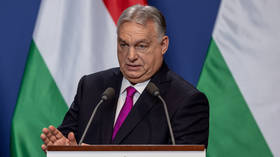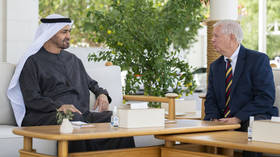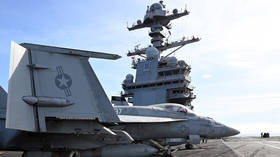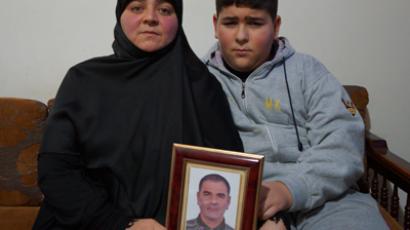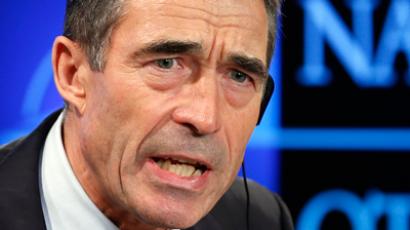Syrian refugees in Lebanon: 'Syria was paradise, now battleground'
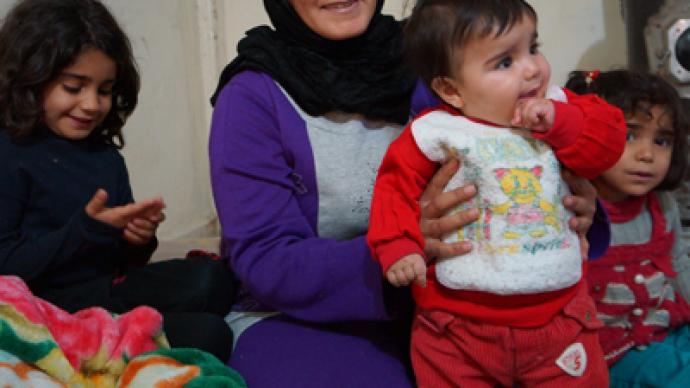
As the number of refugees fleeing Syria has almost reached half a million, around 160,000 have come to neighboring Lebanon, including Palestinians, Kurds, Sunnis and Shiites.
For many, peaceful co-existence with other groups was disrupted by bloody civil hostilities for which they fail to find reasons.Palestinians: Cannot live on a battlefieldMuhammad Tamim and Iptisam and their two adult children fled their home not far from the Palestinian Yarmouk camp in Damascus four months ago. Their parents and three elder children are still there.“As soon as the FSA enters an area, the combat units follow and engage in action. There’s no way we can live in the middle of a battlefield. Syria is headed towards a catastrophe,” said Muhammad, a 50-year-old house builder.His own home was turned into a battlefield. His newlywed elder daughter’s house was looted.“Both sides know no mercy and spare no civilians. The death rate ratio of soldiers to guerilla fighters to civilians is one to 10,” continued Muhammad.“Palestinians are now twice or even three times the number of refugees,” he says, emphasizing he’s not a member of any party, group or movement. When Muhammad and his family arrived in Lebanon, local people helped them start a new life, even though they are Sunnis living in a Shiite community. “We were given a cordial welcome and treated as part of the family: they gave us a home, household stuff, everything,” he said.As we talked, next door’s family would stop by occasionally – a mother and her children.“You know, one family we knew went to Sayda where Sunnis are, but it’s complete chaos there while here Hezbollah keeps it all under control, they give the refugees houses and treat us very well. Our girls are friends with the neighbors’ daughters,” said Iptisam, whose only big concern seemed to be the difference between school programs in Syria and Lebanon. Back home the language of instruction was Arabic while here it is English, and her children are lagging a year behind. But Iptisam is optimistic and believes the girls will catch up with their class. Or, if they don’t, they can marry. There are many suitors already. “But who could actually go through with the wedding now that money is an issue with everyone,” sighed Iptisam. “Back at home we worked and made our living while here we receive aid. But people here are kinder than in Syria, back home we were getting under heavy suspicion.”According to Muhammad, the situation back in Syria is terribly wrong and hopeless.“It’s in someone’s interests to divide us. It started in Syria with Sunnis against Shiites and Alawites. It is less dangerous for the Christians and Druze people, while Shiites are facing certain death,” Muhammad said. “I am short of words to even call what we are having here today – it’s some conspiracy against Syria.” He went on to tell that so many militants are actually from Afghanistan, Pakistan or Libya, many are some heavy-bearded men who speak an unfamiliar language, definitely not any known dialect of Arabic. They actually don’t speak much at all – if you spot one of them in the area it means action will break out soon.“The FSA took over my house. They make holes in the walls so that they could between houses without having to show up on streets. They loot all of them. They took everything they could sell from my daughter’s house: the refrigerator, the washing machine, everything. No one knows for sure whether it was the FSA or some thieves, but the outcome is this,” Muhammad assessed.“Earlier in Syria, women were safe to walk in the street even in the middle of the night – that was freedom, and we don’t have this freedom anymore,” said Iptisam.
Shiites: Anti-Shia slogans on TV from very start Two families from a village nearby Daraa in the South-West of Syria arrived to Lebanon earlier in the night. Nine adults and seven children spent eight hours in a van to get here. The traffic on the border was jammed because of hundreds of Palestinian refugees. The newly arrived asked us not to take their pictures and not to mention their names or the village they are from. Both men are 35, their wives are 27 and 25, with a bunch of kids with them.“We have more people after us than Assad himself. Shiites get killed more often than chicken – but we are peaceful people, we bear no arms,” said one of the brothers, who changed his real name to Abu Muhammad. They claim they had nothing to do with the authorities whatsoever. They believe that the signal to kill Shiites was circulated via TV and mosques from day one, March 15, 2011.“There were all sorts of slogans right away – against Shiism, against Hezbollah, against Iran. But we Arabs from Syria, we are not Iranians; we are not with Hezbollah or the police. We do not support the regime,” said Muhammad. People even avoided switching on pro-Shia TV or radio channels so that their neighbors wouldn’t hear them. “But what use is it? We all know each other in the village, there are 30,000 Sunnis and 3,000 Shiites. We know all names, names of the children. People next door tell the militants who to kill,” he said. The brothers claim that Shiites’ houses and business were marked with writings “off with traitors” or “off with Iran” or simply marked them with a cross and then burned down and thrown stones at.“They started to beat up our kids at school. My daughter is eight years old. She was told that she cannot go to school with other children; they called her a dirty unfaithful non-Muslim. That’s what mothers of other children tell them about our kids – that they are dirty non-Muslims. So they don’t talk with our kids and beat them up. There has never been anything like this before. Never,” said one of the wives. Both young women are distressed, as pale as a ghost. They believe Al Jazeera and Al Arabiya have become a kind of control centers with great influence over what people do. But besides those two, there are two other TV channels, which spread blatant libel and outright instigate viewers against the Shia 24 hours a day: Al Wisal and Al Safa. Refugees accuse these two networks of orchestrating the massacres.“A Shiite is a thug by definition, so it’s a good thing to kill them – that’s what they tell the people,” said Muhammad. “Rebel snipers shoot our children, and then they blame it on the military. The army came to our village for one day, but they were polite and didn’t harm anyone. And when the rebels came, they enveloped the village and set up their checkpoints, where they check every passing villager against their lists. They carry out exemplary executions to intimidate us locals: cut people up, atrociously, and leave their mutilated corpses lying in the middle of the village. They plant bombs in Shiite neighborhoods. My cousin, who had never had anything to do with the government, is now held captive. What for? None of the Shiites in our village are police or army officers, but they are still designated villains. So are pro-government Sunnis, but they are hated even worse than the Shiites, for they are looked upon as traitors.” The family initially had to flee their home village and take refuge on the outskirts of Damascus. Throughout the ordeal, Muhammad has not once witnessed any of the locals as much as put in a word for a Shiite neighbor with the rebels. Everyone is too scared.
Sunnis: No way to fight corruption Rima al Haqim fled Syria for Lebanon with her husband and their four children late last summer. These days Rima is just back to Lebanon after visiting her parents in Erbine, Syria. Her husband, Talha Qaddur, has gone to Homs, Syria, to get a therapy session for cancer. Talha Qaddur is an interior designer by profession. Rima has a degree in commerce and accounting, and used to be a staffer at the University of Damascus before marriage.“The Free Syrian Army has intimidated us out of our home,” Rima says. “We fled because our children were in danger – there was no other reason. But you know, every Syrian is aware of what part each of the stakeholders has played in bringing down misery on our country. When I was on my way here, I saw a Turkish TV crew waiting to interview some of the refugees at the border. Nobody would speak to them. We all know how they twist whatever people say to accommodate their own agenda.” Coming to Syria after three months of absence, Rima has noticed that more checkpoints had sprouted across the area. Bomb attacks occur with the same frequency as before. To buy bread you either have to queue for five-odd hours at a regular bakery, or buy it at a local market for $2 apiece, which is an exorbitant price for Syria. The government is trying to provide bread and fuel at low prices at public outlets. Rima tells me the Syrians are generally tired of the conflict and wish it to end as soon as possible.“The military are forced to return fire on populated areas, because that is where the FSA come out for action. There is turmoil, and indeed, there are mistakes and bad decisions on both sides. But all of it works against the Syrian people,” says Rima. The last straw for Rima was a massacre perpetrated by the rebels in her hometown. The militants killed 13 soldiers, maimed their bodies and left them lying in the middle of the town square. Earlier, rebel snipers would shoot up random people and use them as bate, shooting down anyone who tried to pick up the bodies. Rima sees all this as a deliberate intimidation strategy against the Syrians. Rima’s eldest son claims that in their hometown four people would be killed every day on account of “collaborating with the regime.”“It’s true there had been corruption and bad governance in Syria. But this is no way to fight corruption!” says Rima.Rima recalls one time when her husband gave some soldiers a glass of water to drink. “If he had stayed in town at the time of the massacre, they would have killed him too. Those people have parted with common sense!”“Al Jazeera is not an Arab network, it’s an Israeli mouthpiece,” says Rima. “I’ve been watching the news for the past 20 years. They stick to reporting only one side of the story. It gets outright ridiculous. Once, I texted Al Jazeera, and they only cited half of my message – the one that met their agenda.” Rima opines that the politicians that have emerged riding the wave of the Arab Spring are poorly educated people with scant knowledge of notions such as ‘ceasefire’, let alone complex subjects such as Arab-Israeli wars, or Lebanon’s civil war. All the more so for Syrian rebels.“What do they know about the price of war?” Rima laments. “There is a terrible split in our society. How do you mend a wound like that?”
Kurds: We were given 3 minutes to pack
Walyat Bilyal, 37, is an auto mechanic from Aleppo. He came to Lebanon three months ago with his wife and three little daughters. Their Aleppo home was located in the downtown, which became the site of ferocious urban warfare.“The FSA threw us out of our home. They came along on several Nissans, roused our neighbors and ourselves, and told us we had three minutes to pack. Later, once we had been safely housed next to Sayeed Zeinab, we went back to get our belongings. We barely made it to our former home through all those checkpoints,” Bilyal tells me.“We used to live in a nice, Arab-styled house with a workshop inside. It got looted. Our neighbors’ house got completely torn down. The rebels care nothing for people’s rights, whether you’re a Kurd, a Muslim, anyone. They’ve fed this country to war.”Many Kurds from Aleppo fled the hostilities by moving north, to Kurd-populated areas that are relatively safe. Even those parts feel the impact of the crisis, however: a village that used to be home to some 10,000 residents currently accommodates five times that number.“The FSA move into Kurdish neighborhoods as well, but Kurds organize themselves into community councils and field their own militias, and they promptly drive intruders away,” Bilyal explains. “In Aleppo, we never managed to organize. And now we are refugees.”I ask Walyat if he had ever felt like a disenfranchised minority in Assad’s Syria. This is the story peddled by a host of ‘experts’ speaking on behalf of Iraqi Kurds, who court their kinsmen across the region with aspirations for an independent Kurdish state. Bilyal brushes this off as a bunch of empty tales.“We enjoyed the same rights as the Arabs,” he says. “We used to have no divisions, and didn’t even know who was a Kurd and who an Arab. As long as there’s no division, inequality is not even an issue.”“I dream of going home to Syria. I came here empty-handed, and I’ve been provided with every kind of assistance since. But my home is left behind, and now our entire family is scattered. My parents and my brothers are still in Syria, my wife’s brothers are in Tripoli, and more of our relatives are in Beqaa. We are refugees now – are these the rights they mean to have blessed us with?”
Nadezhda Kevorkova, RT






